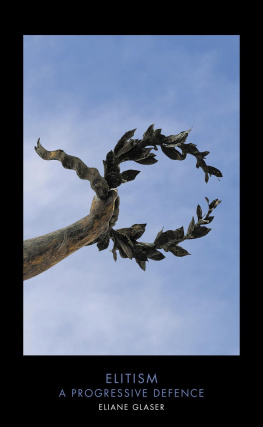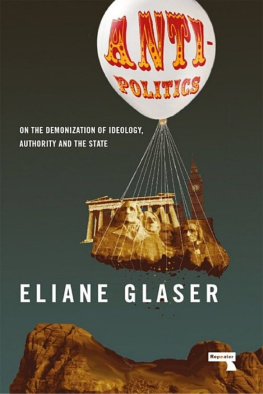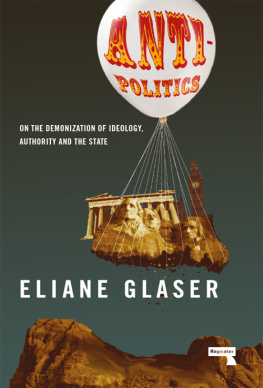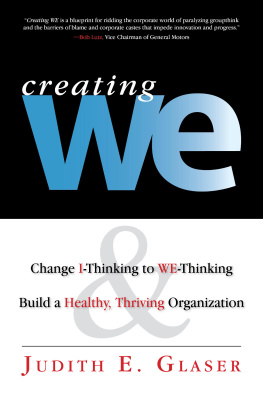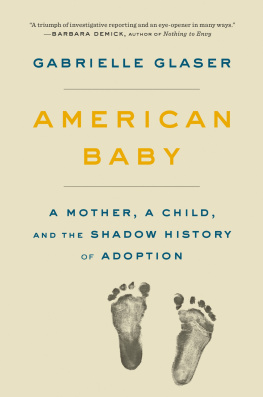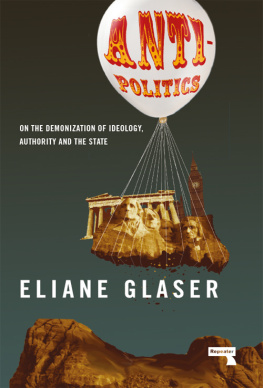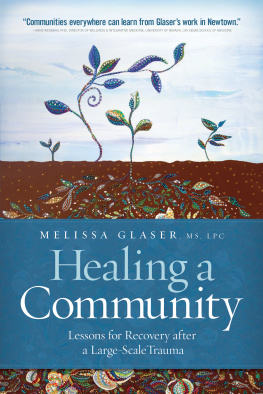Eliane Glaser - Elitism: A Progressive Defence
Here you can read online Eliane Glaser - Elitism: A Progressive Defence full text of the book (entire story) in english for free. Download pdf and epub, get meaning, cover and reviews about this ebook. year: 2020, publisher: Biteback Publishing, genre: Politics. Description of the work, (preface) as well as reviews are available. Best literature library LitArk.com created for fans of good reading and offers a wide selection of genres:
Romance novel
Science fiction
Adventure
Detective
Science
History
Home and family
Prose
Art
Politics
Computer
Non-fiction
Religion
Business
Children
Humor
Choose a favorite category and find really read worthwhile books. Enjoy immersion in the world of imagination, feel the emotions of the characters or learn something new for yourself, make an fascinating discovery.
- Book:Elitism: A Progressive Defence
- Author:
- Publisher:Biteback Publishing
- Genre:
- Year:2020
- Rating:4 / 5
- Favourites:Add to favourites
- Your mark:
- 80
- 1
- 2
- 3
- 4
- 5
Elitism: A Progressive Defence: summary, description and annotation
We offer to read an annotation, description, summary or preface (depends on what the author of the book "Elitism: A Progressive Defence" wrote himself). If you haven't found the necessary information about the book — write in the comments, we will try to find it.
Elitism: A Progressive Defence — read online for free the complete book (whole text) full work
Below is the text of the book, divided by pages. System saving the place of the last page read, allows you to conveniently read the book "Elitism: A Progressive Defence" online for free, without having to search again every time where you left off. Put a bookmark, and you can go to the page where you finished reading at any time.
Font size:
Interval:
Bookmark:
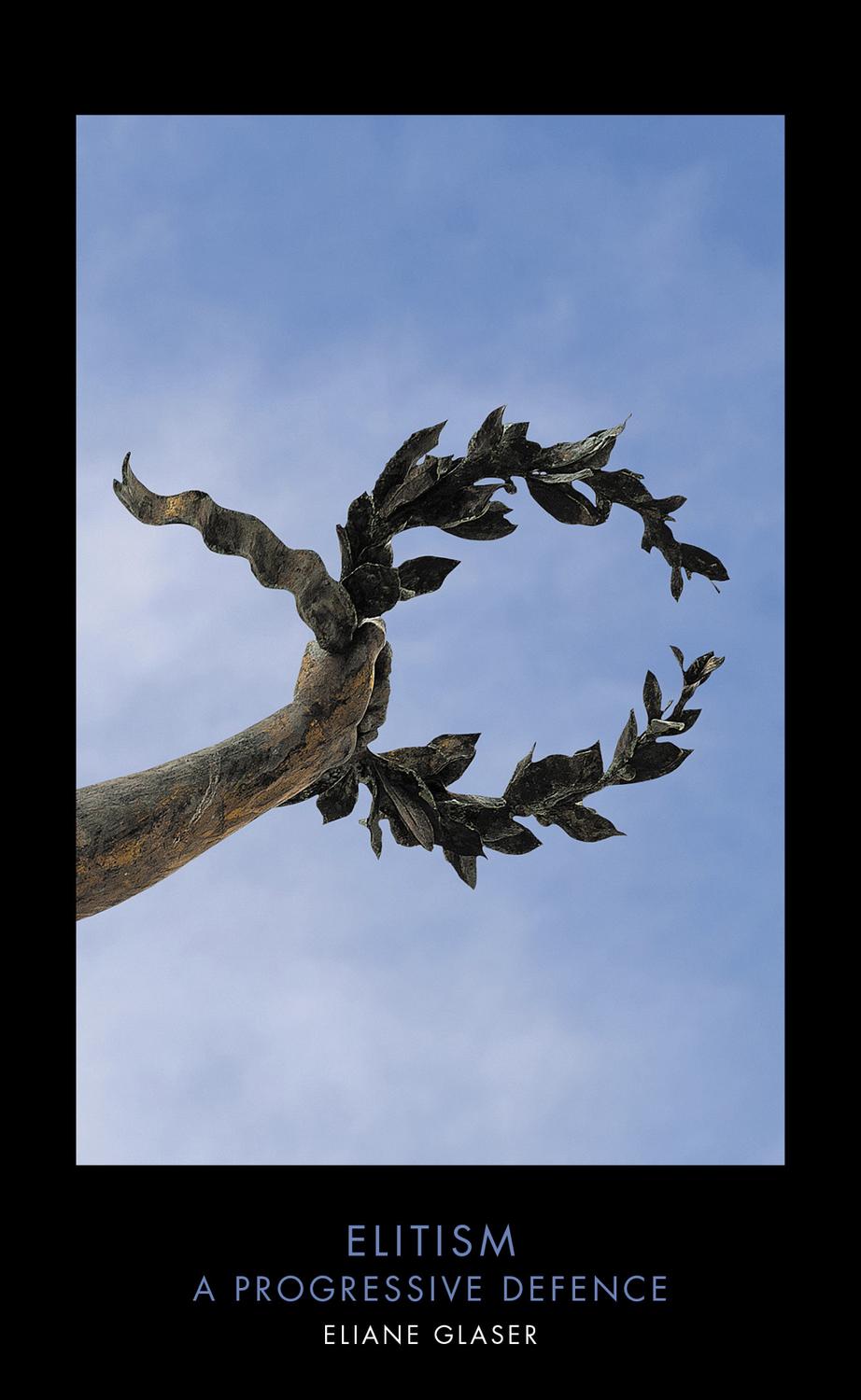
- vi
I ll say it up front: I am a member of the liberal, metropolitan elite. I live in north London, I work in the media, Im a writer and God forbid I teach at a university. I dont actually feel very elite, riding around on a second-hand bicycle, a member of the journalistic precariat, on a shoestring lectureship. Dont get me wrong: I live a very comfortable life. But something peculiar has happened over the past few years. Never mind that eight people, all men, now own as much wealth as half the worlds population. Never mind that CEOs earn 300 times the salary of the average worker. From newspaper commentary, intelligent magazines, TV talk shows, radio phone-ins and social media comes the same message, loud and clear: that it is people like me who are now the masters of the universe. viii Experts, professionals and those who work in the arts, publishing, culture or the media have become public enemy number one.
Those in the firing line know this is happening. They whisper about it in workplace corridors, or in the privacy of their own homes. But they darent say it in public. Why? Because compared to the more serious losers in all this, the gig-economy bikers for Deliveroo or Uber, care workers paid less than the minimum wage, or shelf-stackers on zero-hours contracts, they are doing all right. But this is a trap. Playing off those on the lowest incomes against the overstretched intelligentsia has paid off brilliantly for the burgeoning financial and managerial classes.
This book puts its head above the parapet to call this outrage out. It is an alibi book for all those doing their best and slogging away to keep us safe, to fight for our rights, to question assumptions and to create brilliant and beautiful works of art. This book is not only for doctors, lawyers, scientists, thinkers, publishers, journalists and artists of every variety, but for all those who appreciate what they do. Which is an awful lot of people. ix The coronavirus crisis has shown us how much we rely not only on those who save our lives but also on those who make life worth living.
Anti-elitism is a familiar truism to anyone tuned in to media and public discussion over the past five years. Phrases like liberal elite are bandied about in press commentary without us really knowing what they mean or if they even refer to anything real. They are bogey words that prevent us from diagnosing and therefore strategising an escape from our political and cultural quagmire. The constant reiteration just amplifies rather than analyses the problem.
This book will take a step back and attempt to cut through the endless, self-referential commentary by placing it in vital historical perspective. Ill show why our embattled elites should be not embarrassed but proud and angry. The real economic elites have pulled off a grand deceit. They are diverting public anger away from the obscene profiteering of billionaires, banks and global corporations and turning it onto cultural and educational high standards.
As I will argue, the populist right and the powerful x interests they serve are deploying cultural populism as their primary strategy; but what is less often remarked upon is that this is being enabled by a terrified left, quixotically pursuing the wrong solutions. Progressives are letting the real economic elites get away with it in fact, they are aiding and abetting them by accepting the false frames of the culture wars. Cultural and educational organisations, and the agencies that fund them, are prioritising a modish agenda of democratisation, outreach and user engagement, and the resulting emphasis on symbolic representation functions as a proxy for real structural and economic equality. Liberals no longer have the confidence to advocate for excellence and legitimate critical and political authority: the liberal elite slur is just as common in broadsheet commentary and left-of-centre political speeches as it is on far-right social media. It is true that in many cases, wealth and social privilege does correlate with political office, higher education and cultural production and consumption. But as I will show, it doesnt have to be that way.
This surrender to cultural populism is resulting in the concentration of power and wealth at the top of xi the social hierarchy and a race to the bottom when it comes to artistic and educational quality: a society starkly divided economically with a culture that is increasingly undistinguished and undifferentiated. Culture and expression are being levelled; power and money are not. While the real elites are let off the hook, our arts and education are diminished, becoming bland and apologetic. When we have destroyed all sources of reputable knowledge we will call that equality, while real inequality remains conveniently out of the picture. Vast disparities of wealth and power thus escape scrutiny, while everything that gives life value and meaning has to fight for its very existence.
The anti-elitism that we see everywhere around us is presented as a new development, as ordinary people finally having their say, but it is in fact part of a long anti-intellectual tradition stretching back through Nazi Germany to nineteenth-century America. In the course of this short book Ill pick apart our societys kneejerk confounding of education and culture on one hand and social and economic privilege on the other. Only by doing so can we start to defend good elitism. We have xii given up attempting to define what constitutes truth and beauty, dismissing both as necessarily posh. Yet from the eighteenth century onwards, a series of thinkers and writers set out to do precisely that.
I will point to another largely forgotten historical tradition, running through the writings of William Morris and nineteenth-century workers education initiatives, and on into twentieth-century avant-garde art, media and architecture. This alternative tradition envisaged the most challenging ideas and the highest culture as fully legible to the least prosperous people. By reviving its principles, we can begin to imagine a fairer future in both senses of the word: a future society that values both equality and aesthetics. Its time for a progressive defence of elitism.
A s an adjective, the word elite still has a positive meaning: as in elite athlete, or elite travel agency. As a noun, its now wholly negative. Home Secretary Priti Patel has laid in to the north London metropolitan, liberal elite. The Mail on Sunday hailed Boris Johnsons election victory as a triumph over vain, secluded elites of London, lambasting what it called the Corbyn-supporting, Boris-hating metropolitans and the left-liberal upper deck. Johnsons triumph meant the arrival of the real Britain: normal people living in normal places and dealing with all the hard-edged problems of real life; people who are sick and tired of the political class and the BBC, the megaphone of the liberal elite. Dominic Cummings advertised his disdain for Oxbridge English graduates who chat about Lacan at dinner parties with TV producers. Blame Rich, Overeducated Elites as Society Frays ran a Bloomberg headline. Australias Daily Telegraph bemoaned what it called former Liberal Prime Minister Malcolm Turnbulls elitist attitude and the growing gulf between the working class and the talking class.
A lot of this is, of course, bound up with Brexit, which is often now referred to as if it were a prime cause of public anger, bitter political division and many ills besides. But Brexit is a symptom of a broader political trend, with roots that stretch further back in time. And it has also served as a dredged-out channel through which this growing trend has gushed. For
Font size:
Interval:
Bookmark:
Similar books «Elitism: A Progressive Defence»
Look at similar books to Elitism: A Progressive Defence. We have selected literature similar in name and meaning in the hope of providing readers with more options to find new, interesting, not yet read works.
Discussion, reviews of the book Elitism: A Progressive Defence and just readers' own opinions. Leave your comments, write what you think about the work, its meaning or the main characters. Specify what exactly you liked and what you didn't like, and why you think so.

